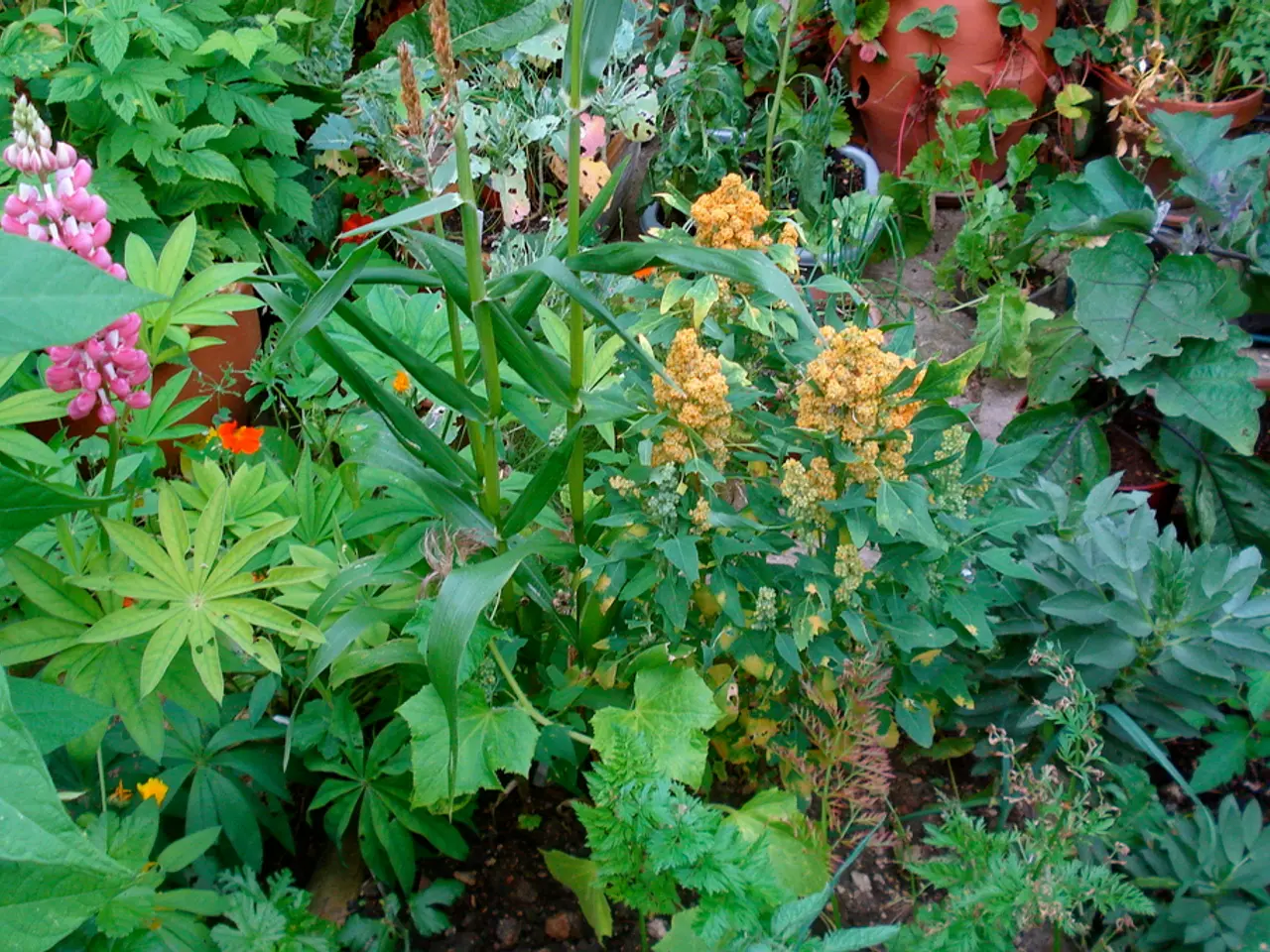Gardening's Impact on Mental Wellbeing Revealed: 5 Key Advantages
In the ever-evolving world we live in, finding moments of peace and tranquility can sometimes feel elusive. However, one simple yet profound activity is gaining recognition for its multifaceted benefits on mental health – gardening.
Diana Martin, the Director of Communications and Marketing at the Rodale Institute, is a staunch advocate for this therapeutic pursuit. She explains, "Gardening offers a unique opportunity for personal growth, self-discovery, and mental health improvement."
Gardening serves as a reminder that life is not always about seeking full control. It involves learning, making mistakes, and waiting for growth – lessons that resonate deeply with our mental well-being.
The main mental health benefits of gardening include significant reductions in stress, anxiety, and depression. It improves mood and emotional well-being, develops psychological resilience, and enhances life satisfaction. Gardening promotes better emotional regulation, increases self-esteem and confidence, and helps foster a sense of calm, purpose, and accomplishment through active engagement with nature.
Stress reduction and relaxation are key aspects explaining these benefits. Gardening provides a grounding, peaceful experience that shifts attention away from stressors to the present moment, soothing the nervous system and decreasing physiological stress markers. The natural sensory stimuli (sights, smells, textures) enhance calmness and mindfulness.
Interaction with plants and outdoor activity boosts mood by triggering serotonin release, with evidence showing gardening reduces symptoms of depression and negative thinking while promoting positive attitudes and emotional health.
Over time, gardening cultivates patience, adaptability, and hope through experiencing and coping with setbacks like plant loss or weather damage. This strengthens individuals’ capacity to manage life challenges and maintain long-term mental wellness.
The act of nurturing plants and witnessing growth gives meaning, purpose, and satisfaction beyond passive exposure to nature, reinforcing a sense of achievement and contributing to improved self-esteem.
Gardening often becomes part of a regular wellness routine that fosters ongoing mental health maintenance and can serve as a social stepping stone, helping people reconnect with communities and regain independence.
Creating and tending sensory gardens with fragrant and visually soothing plants can enhance calm and present moment awareness, similar to meditation. The moderate exercise aspect of gardening in fresh air also contributes to better brain function and overall emotional well-being.
Community gardens have risen across the nation, providing nutrition to impoverished communities and breaking down social barriers. They have created opportunities for developing meaningful relationships that may not have existed otherwise. During challenging times like the pandemic, community gardens have served as a source of support and connection.
In summary, gardening acts as a multifaceted therapeutic activity improving mental health through psychological, emotional, social, and neurobiological pathways, with benefits increasing with regular engagement. Whether you're a seasoned gardener or just starting out, embracing this green therapy can lead to a more rooted, connected, and grateful life.
Read also:
- Budget cuts at federal and state levels jeopardize advancements in fighting HIV and AIDS within Dallas County
- Strategies for Maintaining and Boosting Physical Activity as You Grow Older
- Understanding Prediabetes: A Precursory Condition to Diabetes
- Strategies for Strengthening a Nigerian Infant's Immune System







